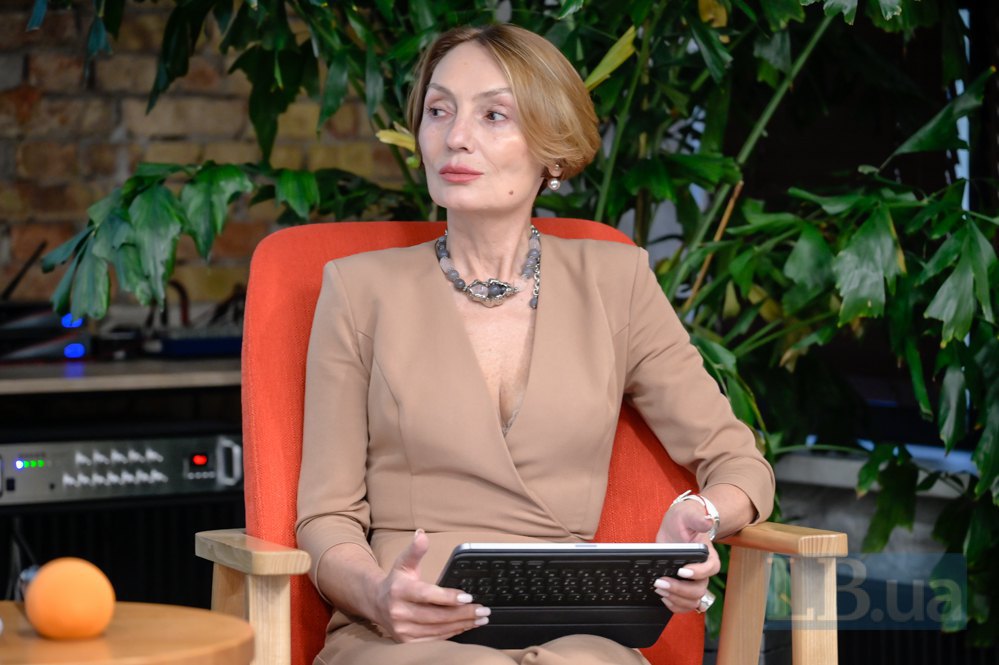
The banking sector, except for certain representatives of this sector, does not resort to dubious approaches to optimisation. This is also because the vast majority of the banking sector, or the bulk of it, is audited by sane auditors. That's why I understand that this is the easiest way not only to do it (to raise the tax for banks - Ed.), but also to communicate about it. Because when I was at the working group and the committee, the following arguments were made by respected MPs: just imagine, we raised the tax for them from 18% to 25%, and they continue to be profitable. Sorry, but banking is a business. And it has to be profitable,’ says Rozhkova.
And the sharp increase in the tax rate, she said, looks like a punishment for the banking business, which today ‘pays taxes consciously, transparently and honestly’.
In addition, the NBU representative adds, due to the increase in deductions from profits, commercial banks may face the need to recapitalise in accordance with EU regulations.‘We have certain obligations to the European Union in terms of European integration in terms of implementing regulations that will require banks to raise capital. And if the increased tax is applied this year, we see that a certain number of banks, not many of them, but among them there are two large state-owned banks, will violate the capital ratio. And these banks have already come to us today and said that their supervisory boards will write a letter to the shareholder and say, please, capitalise us, because we will violate capital standards,’ Rozhkova says.
However, she notes that additional charges from banks do not significantly affect the budget deficit.
‘If we do not take into account state-owned banks, whose profit in the banking system is 60%, the additional tax that can be collected from non-state banks is approximately 19 billion. Of this, 10 billion will be paid this year if the final law is passed; about 9 billion will be paid next year. Now let's compare this with the figures that the minister has repeatedly announced, which is the amount of money we need to cover this year and next year (about UAH 500 billion - Ed.).
Why don't I take over state-owned banks? Because the state takes this money from them either through taxes or dividends. One way or another, it is a redistribution between items, but nothing changes in the end from changing places. Why else is this bad? Because banking is a business. And the shareholders of non-state-owned banks should still have some interest in the development of this business and in fulfilling the tasks we set for them today.
And we have reached an agreement and confirmed it to the Minister and his team that we will raise the necessary amount - UAH 360 billion to be found this year to cover the deficit - from the banking system through their work on the domestic borrowing market. In other words, banks will buy government securities and thus finance the deficit,’ said the First Deputy Governor of the National Bank.

Ultimately, she says, the tax increase for banks will offset the business component of banking.
‘This sector, among other things, maintains deposit rates, reduces lending rates, signs a lot of memoranda on energy, and withstands a lot of moratoriums on collateral collection when businesses or people cannot service these loans for reasons caused by the war. Ensures continuity during long-term blackouts by investing in Starlinks, generators, etc. Ensures uninterrupted operations by creating backup locations, creating backup databases, and investing in IT. It does all this during the war and continues to lend during the war. And we want to create conditions for them where the purely business component will simply disappear. In the end, we will be left with state-owned banks, which, no matter how we spin it, have a certain limited resource. That's why we were against it,’ the NBU representative said.
In addition, the World Bank and the IMF are against raising taxes for the bank, she said.
‘Why do they have this position? Because in 2023, when we discussed the need to raise taxes, it had to be done quickly. We had discussions in the committee and proposed: ‘Let's raise taxes from 18 to 36 for two years - 23/24. And then we, together with the Ministry of Finance, the relevant committee and its chairman, came to the conclusion that we would do 50% here and now, and 25% starting next year. 50% is a one-time payment. And we signed up to it. We said so,’ says Rozhkova.
In addition, she notes that non-state banks are prohibited from distributing and paying dividends.
‘Their shareholders - with credit risks, liabilities, claims, etc. - have no way to use even these profits at all. We have banned them from paying dividends. We want them to create this capital buffer. Because now, thanks to the Ukrainian Armed Forces, our defenders, there are no such massive losses of territories and assets, but they still exist. And the war is still ongoing,’ says the NBU representative.









